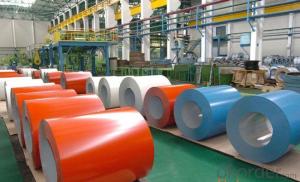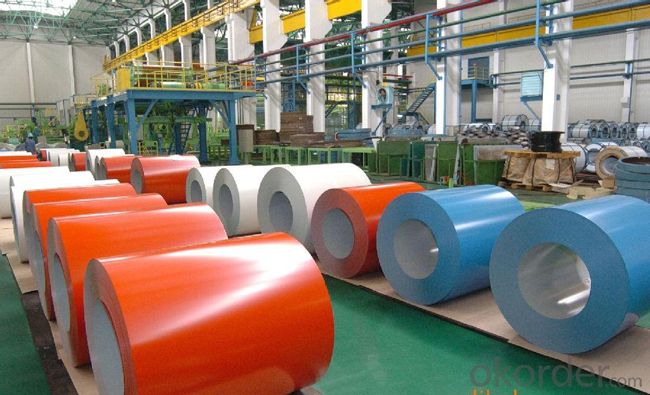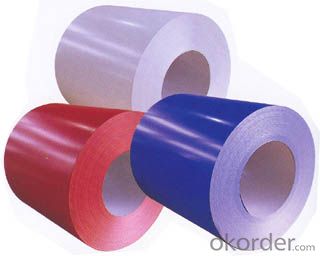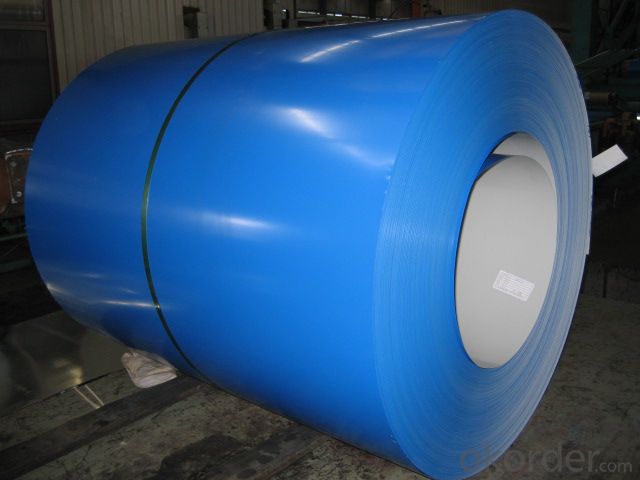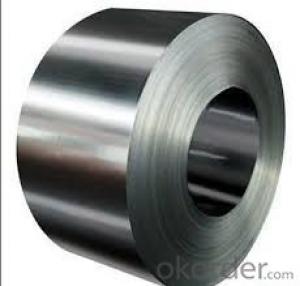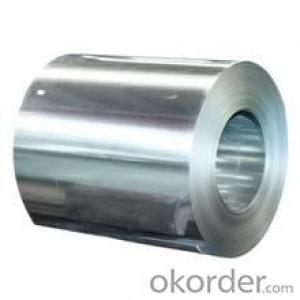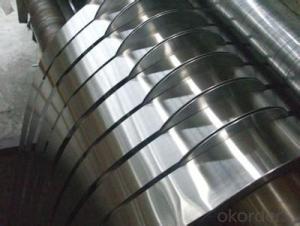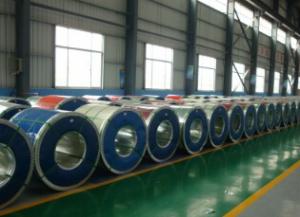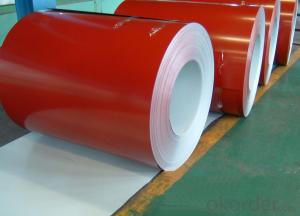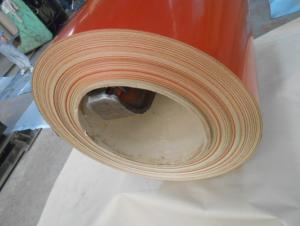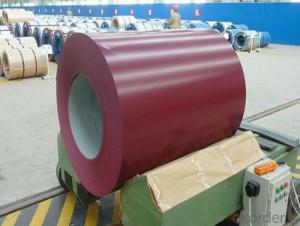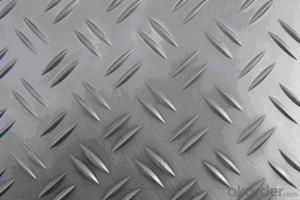All kind of color coil and sheet
- Loading Port:
- China Main Port
- Payment Terms:
- TT OR LC
- Min Order Qty:
- -
- Supply Capability:
- -
OKorder Service Pledge
OKorder Financial Service
You Might Also Like
Product Features
super weather resistance and durability , also the pattern is capable to bring about plenty of effects of multilayer, parallax and 3D effect.
Application
It is the perfect building material in construction for making steel roofing/suspended ceiling, office partition, Sandwich panel, insulation panel, corrugate sheet, facade wall,rolling doors, T-bar, garage door and shutters etc.
Structure of Cross-section
Items | Thickness | Type | Features |
Protection Film | 50μm | polyethylene | Protecting from scratches and |
Finished Coat | 10μm | PVDF | Protecting printed layer and enhances |
Print | ≦1μm | Ink, Polyester | Various printing patterns,3 colors overprint |
Top Coat | 20μm | Polyester Fluorine | Chemical resistance, formability and |
Primer Coat | 5μm | Polyester | workability, corrosion resistance and |
Chemical Treatment | ≦1μm | Chromate | Good adhesion and corrosion resistance |
Substrate | 0.2-1.2mm | GI.GL.AL | GI.GL,AL |
Chemical Treatment | ≦1μm | Chromate | Good adhesion and corrosion resistance |
Back Coat | 5μm | Epoxy | corrosion resistance and adhesion to the |
- Q: what do you think about it? Is it a good steel for the money? the knife that i have with that steel is the kershaw chill. good knife for the price
- 8Cr13MoV is a decent blade steel...not a great steel, but about as good as you will generally find without paying much higher prices. It's used by a number of well known knife makers... It's basically equivalent to AUS-8 and will work and hold an edge reasonably well for most basic cutting chores. *************************************** From Wikipedia, the free encyclopedia: 8Cr13MoV, a Chinese stainless steel tempered at the Rc56 to Rc58 range and used in the Tenacious, Persistence, Ambitious, Resilience, Grasshopper, Kiwi3 and Byrd lines of knives. Often compared to AUS-8, but with slightly more Carbon.
- Q: How are steel coils coated or painted?
- Steel coils are typically coated or painted using a process called coil coating. In this process, the steel coil is cleaned, treated, and primed before being coated with a layer of paint or a protective coating. This is usually achieved through a continuous automated line, where the coil is unwound, cleaned, coated using various methods such as roller coating or spraying, and then cured to ensure adhesion and durability of the coating. This process allows for efficient and uniform coating application, providing the steel coils with enhanced corrosion resistance and aesthetic appeal.
- Q: I need to identify a metal. It is rusty so I suspect it is either iron or steel. Since they both have similar densities and are magnetic, how do I tell the difference betweeen steel and iron?
- Steel is a refined, alloyed metal that is mostly iron. Iron, in a chemistry sense os simply Fe. In an industrial sense iron is pig iron commonly saturated with carbon, up to 4.5% and has other impurities like sulfur. Pig iron is brittle and should break rather easily, and bend very little. After a piece is broken look at the crystal structure, you should see rather small crystals. Most steel made for car body's, washing machines, file cabinets, low grade bolts and nuts etc. should flex and bend before breaking. Most steel made for things like cutting tools, axles, etc, is hardened and will chip and break rather than bend. Also you can try to heat the piece to a glowing orange temperature. It must be very hot. Cool it. If there is a lot of white flake scale on the piece it is impure and probably iron of some sort. In the end the only way exactly tell is have an analysis done and look at the chemistry.
- Q: What are the properties of high-strength steel coils?
- High-strength steel coils possess several distinct properties that make them highly desirable in various industrial applications. Firstly, these coils exhibit exceptional strength, meaning they have a high tensile strength and can withstand significant amounts of force or weight without deformation or breakage. This property allows them to be used in demanding environments or for heavy-duty purposes. Another key property of high-strength steel coils is their excellent resistance to wear and tear. They have a high level of hardness, which enables them to resist abrasion, impact, and other forms of mechanical stress. This makes them ideal for applications where durability and longevity are crucial, such as in construction, automotive manufacturing, and machinery production. Additionally, high-strength steel coils often possess excellent corrosion resistance. They are typically coated or treated with protective materials to prevent rust or other forms of deterioration caused by exposure to moisture, chemicals, or harsh environmental conditions. This corrosion resistance property ensures the longevity and reliability of the coils, making them suitable for applications in marine environments or outdoor structures. High-strength steel coils also offer good formability, meaning they can be easily shaped or bent without losing their strength or integrity. This property allows manufacturers to create complex or custom shapes for specific applications, enhancing their versatility and adaptability. Lastly, high-strength steel coils are known for their light weight compared to other materials with similar strength properties. This low weight-to-strength ratio makes them a preferred choice in industries where weight reduction is crucial, such as aerospace or automotive manufacturing. It allows for improved fuel efficiency, increased payload capacity, and overall cost savings. In summary, high-strength steel coils exhibit properties such as exceptional strength, resistance to wear and tear, corrosion resistance, formability, and light weight, which make them valuable and versatile materials in various industries.
- Q: I want to buy a VERY sturdy bunkbed, but don't know which one would be better with not getting loose or falling apart.
- Metal/Steel, tighten it down and put some washers in between the steel and the screw so it creates a tight fit and movement wont affect the screw directly.
- Q: Is cold steel actually steel? Does it hurt? Why is it used in training? First one to goodly answer those questions gets 10 points.
- Fluffy blue handcuffs.
- Q: What are the different types of steel coil surface treatments for outdoor applications?
- There are several types of steel coil surface treatments suitable for outdoor applications. These include galvanization, which involves coating the steel with a layer of zinc to protect against corrosion; zinc-aluminum alloy coating, which provides enhanced corrosion resistance; paint coating, which adds a layer of protective paint to the steel surface; and organic coating, which uses a polymer-based material to protect against weathering and corrosion.
- Q: How are steel coils inspected for surface finish using profilometry?
- Steel coils are inspected for surface finish using profilometry by measuring the surface topography using a profilometer. The profilometer scans the surface of the steel coil and records the deviations from the ideal surface. This data is then used to determine the roughness, waviness, and other surface parameters of the steel coil, providing a quantitative assessment of its surface finish quality.
- Q: What are the different methods of forming steel coils into sheets?
- Steel coils can be formed into sheets using various methods, each having its own benefits and uses. 1. The most commonly employed technique is hot rolling. This involves heating the steel above its recrystallization temperature and passing it through rollers. The rollers apply pressure to reduce the thickness of the steel and elongate it into a sheet. Hot rolling yields smooth sheets suitable for a wide range of applications. 2. Cold rolling, on the other hand, does not require heating the steel. Instead, the steel coil is passed through rollers at room temperature. This process results in sheets with higher dimensional accuracy and a smoother surface finish. Cold-rolled sheets are ideal for applications requiring precise dimensions and a polished appearance, such as automotive body panels and appliances. 3. Annealing and pickling is a method that involves subjecting the steel coil to a heat treatment process called annealing, followed by pickling. Annealing entails heating the steel to a specific temperature and then slowly cooling it to relieve stress and enhance its mechanical properties. Pickling involves removing impurities and scale from the steel surface. These steps are typically performed before hot or cold rolling to ensure a high-quality end product. 4. Galvanizing is a process where steel sheets are coated with a layer of zinc to protect against corrosion. The steel coil is first cleaned and then immersed in molten zinc. The zinc adheres to the steel, forming a protective layer that prevents rust and corrosion. Galvanized sheets find common use in construction, automotive manufacturing, and electrical appliances. 5. Electro-galvanizing is similar to galvanizing, but instead of immersing the steel coil in molten zinc, an electric current is used to deposit zinc onto the steel surface. Electro-galvanizing provides similar corrosion resistance to traditional galvanizing but with a thinner coating. It is often favored for applications requiring thinner and more lightweight sheets. In conclusion, the formation of steel coils into sheets can be achieved through various methods such as hot rolling, cold rolling, annealing and pickling, galvanizing, and electro-galvanizing. Each method offers distinct advantages and is suitable for specific applications based on factors like surface finish, dimensional accuracy, and corrosion resistance.
- Q: How are steel coils used in the production of agricultural machinery?
- Steel coils are used in the production of agricultural machinery as a primary material for various components and structures such as frames, chassis, and panels. The coils are typically cut, shaped, and welded to create the desired parts, ensuring strength, durability, and reliability in the machinery.
Send your message to us
All kind of color coil and sheet
- Loading Port:
- China Main Port
- Payment Terms:
- TT OR LC
- Min Order Qty:
- -
- Supply Capability:
- -
OKorder Service Pledge
OKorder Financial Service
Similar products
Hot products
Hot Searches
Related keywords
